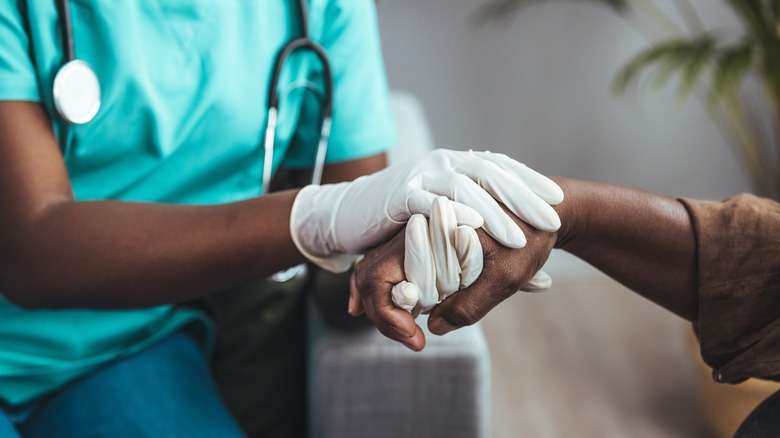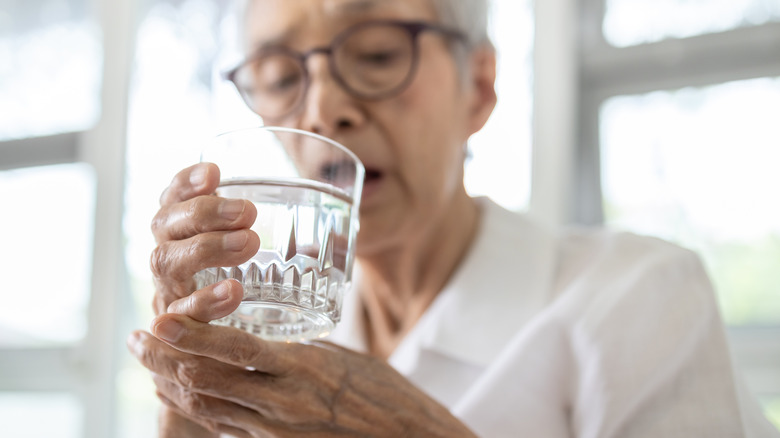Researchers Have Discovered A Potential New Treatment For Parkinson's Disease
Parkinson's disease is a degenerative disorder of the central nervous system that often impairs the patient's motor skills and speech (via Parkinson's Foundation). The disease is characterized by muscle rigidity, tremors, a slowing of physical movement and, in extreme cases, paralysis. No one knows the exact cause of Parkinson's and there is no cure for the disease. However, a new study published in the journal npj Regenerative Medicine found that there may be hope in treating Parkinson's patients in the future.
According to the study, researchers were able to successfully reverse motor symptoms of Parkinson's disease in rats by implanting induced pluripotent stem cells in the animals. This then allowed scientists to treat the cells and reverse or prevent some of the effects of the disease. "It's like taking a book, and then washing away the ink, and then being able to rewrite what that book is," said Dr. James Beck, senior vice president and chief scientific officer for the Parkinson's Foundation (via Medical News Today). A clinical trial involving humans is expected in 2023 and doctors are optimistic about the effects this treatment may have on people with Parkinson's disease.
What to know about Parkinson's disease
Parkinson's disease is a chronic and progressive neurodegenerative disorder that affects the central nervous system. The disease is characterized by tremors, muscle rigidity, slowed movement, and impaired balance and coordination (via Mayo Clinic). Other symptoms of Parkinson's include cognitive impairment, depression, and anxiety.
The cause of Parkinson's is unknown, but it is believed to be a combination of genetic and environmental factors. Specific genetic mutations can increase someone's risk of developing the disease. Environmental factors that have been linked to Parkinson's include exposure to certain toxins and viruses. Risk factors of Parkinson's disease include age, heredity, sex, and exposure to toxins. There is no cure for Parkinson's disease, but treatments are available to manage the symptoms. Medications can be used to control the motor symptoms of Parkinson's. In some cases, surgery may be an option. Physical and occupational therapy can help people with Parkinson's maintain their independence and quality of life.


